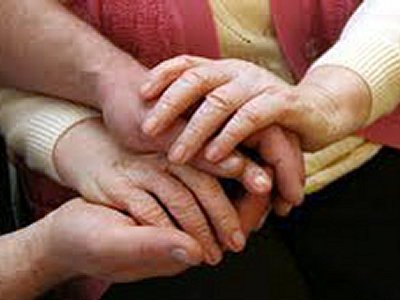
1984 PLUS ONE
Imagine trying to improve on the Sistine Chapel or Beethoven’s Ninth Symphony?
This is the unenviable task Sandra Newman gave herself in the novel Julia (Granta Books, 2024) where she set out to write George Orwell’s epic, dystopian story 1984 from the perspective of Winston Smith’s lover. Orwell’s estate gave permission for the work, but it still feels like giving yourself the world record height to achieve on the high jump with everyone watching. And yet she clears the bar and this is the consensus of the reviewers.
This is an uncomfortable moment for George Orwell following the publication of Wifedom (Penguin, 2024) by Anna Funder; an account of Eileen O’Shaughnessy’s life as the spouse of Orwell. O’Shaughnessy was an accomplished Oxford educated poet, but largely became invisible after marrying Orwell. This, despite the significant contribution she made to the development of his books. Funder was keen to write a feminist essay on the Orwell household, given allegations of his misogyny, while Sandra Newman’s purpose was to produce a feminist revision of 1984 itself.
Please be aware the following contains plot details from the novel, Julia:
Newman both follows and departs from Orwell’s plot. But throughout we see the totalitarian state through the eyes of women, and one woman in particular. The conduct of women is no better than the men in this police state; there is loyalty, but also betrayal when alliances shift or danger presents itself. There is, however, a genuinely comradely spirit at work between some in the women’s dorm. Women’s periods are attended to in ways Orwell would not have dreamed of, made worse by the squalid and unsanitary conditions in which they live. There is an appalling miscarriage, where personal misfortune is compounded by the cruel indifference a police state specialises in.
1984’s world is famous for the ubiquitous TV screens where secret police look inwards on households, places of work and other public spaces. As Julia strips off her clothes, she asks the monitors to look away, knowing full well the men who watch will pay even closer attention. Throughout, female desire and experimentation is given full expression.
Orwell gave no space for hope, writing as he did in the wake of Stalin’s purges and Hitler’s Gestapo. There is apparent denouement in Newman’s novel as Oceania’s grip on power in the UK is loosened inexorably even as the population is kept in the dark. On escaping the state’s clutches, Julia meets liberators that behave decently towards her and even has the opportunity to meet Big Brother who has already been captured. His ageing, demented state turns him into a Wizard of Oz figure, diminished and pathetic, while the propaganda continues to exalt him.
But the liberators may not be what they seem, and the novel ends with the clear hint that the liberators are simply oppressors in waiting, whose malevolence will unfold once they establish their rule.
In John 10, Jesus calls himself the good shepherd and contrasts himself with the thief who ‘comes only to steal, kill and destroy’. Perhaps unconsciously we imagine corrupted religious leaders who have spiritually abused their followers. But Jesus, both in his self-understanding and in the scriptures about him, is King of all, not just head of the Church. The thief, then, may be better understood as the secular ruler who accumulates endless power over others while personally enriching themselves, family and friends.
The world has plenty of rulers who belong in prison for their corruption, while those who oppose them occupy the gulags and black sites instead. One of the often unremarked upon casualties of the police state are women and girls, whose voices are silenced and bodies abused in ways that even the best intentioned male historians have often ignored or misread. Sandra Newman has turned these stories into prose. Julia is a far from perfect character, but she is a survivor who wants freedom for her body. In this, she is an archetype of women occupying the darkest places of our lifetimes.





